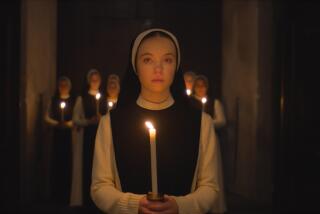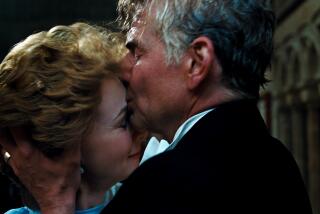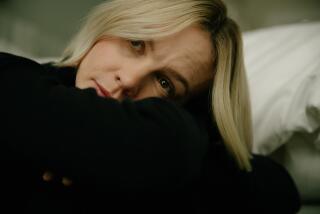In Netflix’s ‘The Perfection,’ Allison Williams and Logan Browning are destined for greatness

Warning: The following article contains minor plot spoilers for the Netflix thriller “The Perfection.” You’ll see another warning before discussion of the film’s last act.
In order to portray a pair of musical prodigies for Richard Shepard’s psychological thriller “The Perfection,” stars Allison Williams and Logan Browning had to learn to look like were playing the cello convincingly in a little over two months.
“At the time, I was shooting five days a week on [‘A Series of Unfortunate Events’], so it was lots of early morning cello,” said Williams. “I felt so bad for my neighbors. When I moved out of the apartment, I almost wanted to give them baskets or something, like, ‘I’m so sorry for all of the 2 a.m. cello you had to listen to.’ ”
In the film, which is streaming on Netflix, Williams plays Charlotte, a virtuoso with a tortured past. Upon meeting Lizzie (Browning), the new star pupil at her former school, the two barrel together down a demented path that is as sinister as it is unexpected.
Though Williams and Browning hadn’t met prior to production, the two quickly bonded over the shared instrument. “We immediately developed such an easy rapport having the cello in common and trying to learn in a very meta way,” said Williams. “It was a very uniting thing because it was so hard.”
On top of that, the actresses were tasked with learning songs that were deliberately written to be difficult. “Richard didn’t want them to be songs that anyone would recognize,” said Williams. “[So] it didn’t sound as beautiful as when decades-long cellists play those songs, but we could play them.”
After having worked with Williams on HBO’s “Girls,” the director (who co-wrote the script with Nicole Snyder and Eric C. Charmelo) wrote Charlotte with her in mind and sent over the script while she was in the middle of shooting the last season of Netflix’s “Unfortunate Events.”
“He’s like, ‘I’m having an insane script delivered to you. It’s crazy. Call me as soon as you finish it,’” she recalled. “I was like, ‘Oh, boy, I can’t wait.’ The script read so well that I read it in one sitting, I could not put it down.”
“It was a literal page turner,” agreed Browning, who also stars in the Netflix series “Dear White People” and was cast in “The Perfection” after an extensive search. “There are moments early on in the script where, when I read them, I didn’t understand how the movie could continue.”
The stars and director are careful to keep several key twists and plot points under wraps. “It’s weird to promote a movie in which you really can’t talk about like half of the movie without spoiling it,” said Shepard. “It’s really tough. I think a lot of the joy of the movie is not knowing what’s going to happen.”
Over the course of the film, Charlotte and Lizzie’s relationship is, at times, impossible to parse — are they colleagues? Rivals? Lovers? The constantly shifting dynamic got a boost from the actresses’ “immediate” chemistry, says Browning. “It was very natural because I trusted and related to Allison and got along with her and admired her,” she said.
“Mutual,” said Williams. “I think spending so much time in prep and also learning the cello together was all we needed to make sure that there was an intimacy and a comfort. So going into whatever scene it was, whatever the dynamic was supposed to be, we already had developed a shorthand and it was just very easy to get into.”
REVIEW: Allison Williams is darkly divine in ‘The Perfection’ »
That ease was further aided by the artistic shorthand Williams had honed with Shepard over the course of filming “Girls.”
“Richard has directed me through some of the most intense stuff I’ve done on ‘Girls,’ and so this was like, ‘We’re good,’ ” said Williams. “It got to the point where Logan was like, ‘You guys didn’t even use words.’ He’d come towards [me] and [I’d] go, ‘Yeah, yeah, I know,’ and he’d walk away again. And it is weird. At the end of the scene, I was able to look at it again from Richard’s point of view and be like, ‘Oh, yeah, he probably didn’t like that. We have to do that again and for this reason.’ And that’s the thing that on a movie like this you can hope for, but it’s not guaranteed at all.”
“Watching them made me comfortable,” said Browning. “I didn’t feel like I was the odd kid out. I was like, ‘Oh, I’m the odd kid that gets to join in with these odder kids.’ They got along so well and were so inviting and welcoming and very collaborative. You really never know what you’re going to get when you go into a new experience with a new team of people, and to be welcomed with such open arms and a mutual level of respect, I always want to work like that.”
“I wanted their input to help create these characters,” said Shepard. “As I’ve gotten older and been doing this, I just feel like the movies gain so much by bringing the actors in as a partner. They were in the editing room challenging me the whole time, but in a good way. And the two of them together, I also knew would challenge each other.”
The film was shot very swiftly over the course of just 23 days, including 72 hours in Shanghai, an experience Williams remembers as being “a blur.”
“I looked back at the photos I have on my phone, so I know I was there,” she said. “And I watched the movie, so I know I was there. But my actual in my body memory of it is so-so.”
One of the critical scenes filmed in the city was a sex scene that both women say they felt extremely supported throughout.
“My favorite thing about Richard’s sex scenes, because I’ve worked with him enough that I have favorites about each kind of moment, is how quickly he shoots it,” Williams said. “He’s not killing everyone with coverage; it’s about advancing the story. It’s not gratuitous. And he knew he was going to intercut it with the performance and the dancing and just wanted all of it to feel like one expression of companionship and comfort.”
“I hadn’t done a love scene with another woman before so I had no idea what that was going to be like,” said Browning. “And honestly it was one of the best possible scenarios. I pray and hope that everyone can have an experience that’s as safe and trusting and comfortable as that because that is the way it’s supposed to go. There is a way to capture art that is beautiful, sensual and sexual that allows everyone in the room to feel safe and comfortable.”
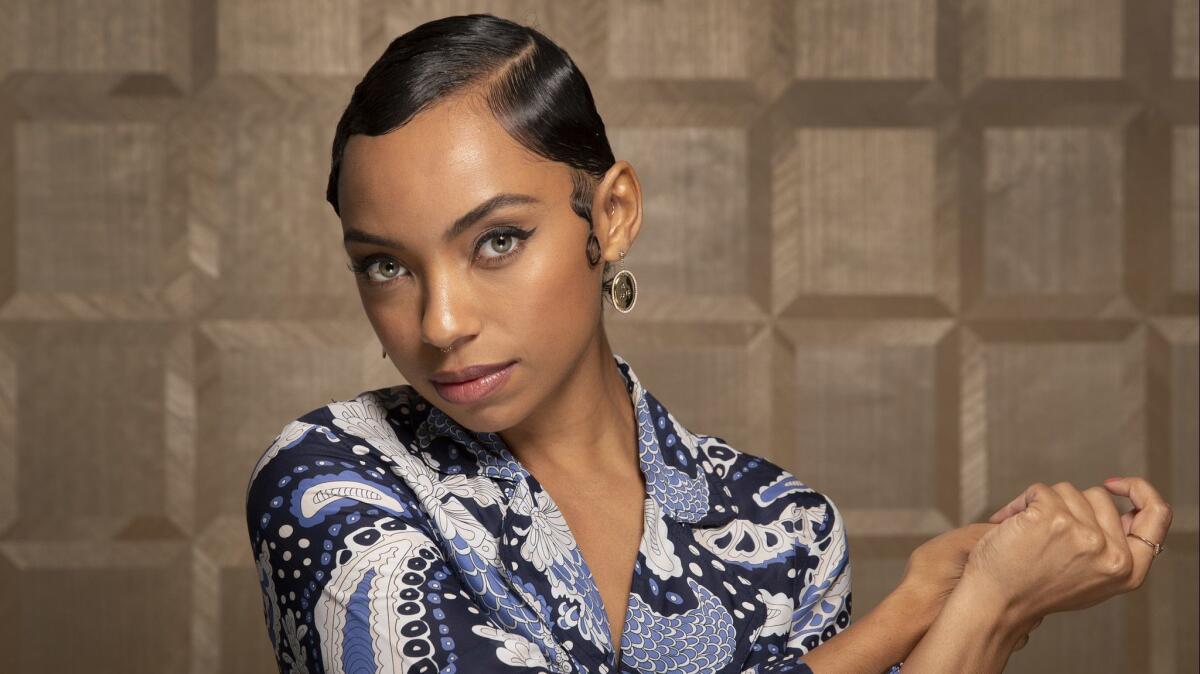
The film marks Williams’ second consecutive horror film following her memorable performance as honey badger Rose Armitage in Jordan Peele’s Oscar-nominated “Get Out.”
“I thought that having that sort of hangover in people’s associations of me going into the beginning of this movie for Charlotte would work really well,” she said. “I thought I could use it to the advantage of the movie which hopefully has worked.”
At the same time, the actress is hypervigilant about not being pigeonholed in villainous roles.
“I think carefully about all the choices that I make, but I haven’t sort of cemented myself like ‘I’m just going to be villainous,’ ” she said. “I think that the coolest thing you can do in 2019, working off of the way the industry naturally has developed over the years, is just to be able to understand how people see you from a meta level and play with that in the roles that you take.”
Despite that level of insight, Williams still struggles with relinquishing control over the way the movie is received by audiences.
“This is movie No. 2 for me so I’m still new at this, but the weirdest thing is that we don’t get to control that,” she said. “And for someone who likes a little bit of control in her life, it is very stressful. I think a movie like this can have a lot of different takeaways. I’m really excited to see all the different perspectives.”
“I just hope people have a really good time,” said Browning. “I would love for it to be a part of the genre forever. I’d love for it to be one of those movies that people always refer to just because of how much fun and how wild of a ride it is.”
Warning: Spoilers for the last act of “The Perfection” follow. Stop reading if you’d like to preserve the twists.
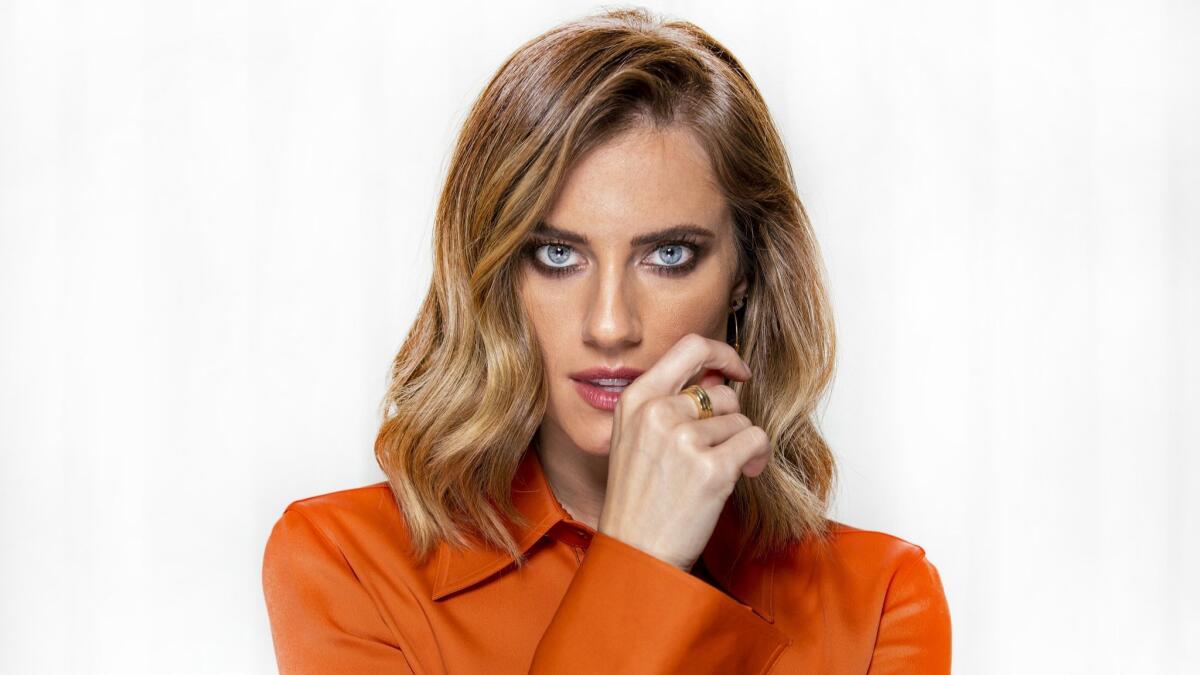
As “The Perfection,” which was written ahead of the Time’s Up and #MeToo movements, races toward its final twists, it becomes eerily prescient in its exploration of themes involving sexual abuse and assault, revenge and retribution.
The writers were inspired by the Netflix docuseries “The Keepers,” which delves into the unsolved murder of a nun and its suspected link to a priest accused of sexual abuse.
“[Charmelo and Snyder] had both been thinking about doing something in that vein already when they started writing this movie,” said Williams. “And then, I think, right when I signed on to it, the Harvey Weinstein stuff broke, so it was very strange. It has continued to feel sort of bizarre working on a movie [like this] while this has been happening.”
Pre-production on the film coincided with the U.S. women’s gymnastics teams’ testimonies against disgraced former physician Larry Nassar.
“Watching their courage and speaking in the face of their accuser, I just felt so invigorated by that and felt like a superhero for those women, releasing that tension and that pain,” said Browning of Lizzie’s actions near the end of the film. “Because even being a part of something like this [movie], you have to trust the process, you have to trust the people you work with. And when they take advantage of that, it breaks a part of you forever.”
Browning incorporated her feelings surrounding the Nassar hearings into her performance, particularly in a final scene that finds her character Lizzie face-to-face with her abuser.
“In the moment of playing revenge, I felt very satisfied saying this was for everyone it was for,” she said. “I felt like I released something I had no idea I was holding on to from all the stories I’ve ever read.
“What’s great is that we were able to tell this crazy story that still has messaging in it,” she added. “And the revenge aspect of it, I think, is a very cathartic experience for people who have gone through trauma like that or who know people who have.”
For his part, Shepard was cognizant of keeping the sensitive themes from veering into exploitative territory.
“Because it’s a revenge movie, revenge is had,” he said. “And as a civil society, revenge is a tough thing. So as a filmmaker, it’s tough because we’re physicalizing a fantasy in a way. We as a society can’t kill or maim the people we want to. But as a fantasy, there’s a lot of people we want to … kill and maim, especially if they’re awful people.
“I’m a fan of genre movies because I think they, in general, allow you to do a lot of things,” he added. “Cinematically, you have a lot of license. If you give people what they want, if there’s enough scares and thrills, then you can actually have depth about social stuff, emotional stuff, dramatic stuff. And in a way, a freedom you don’t have in a non-genre film.”
follow me on twitter @sonaiyak
More to Read
Only good movies
Get the Indie Focus newsletter, Mark Olsen's weekly guide to the world of cinema.
You may occasionally receive promotional content from the Los Angeles Times.
